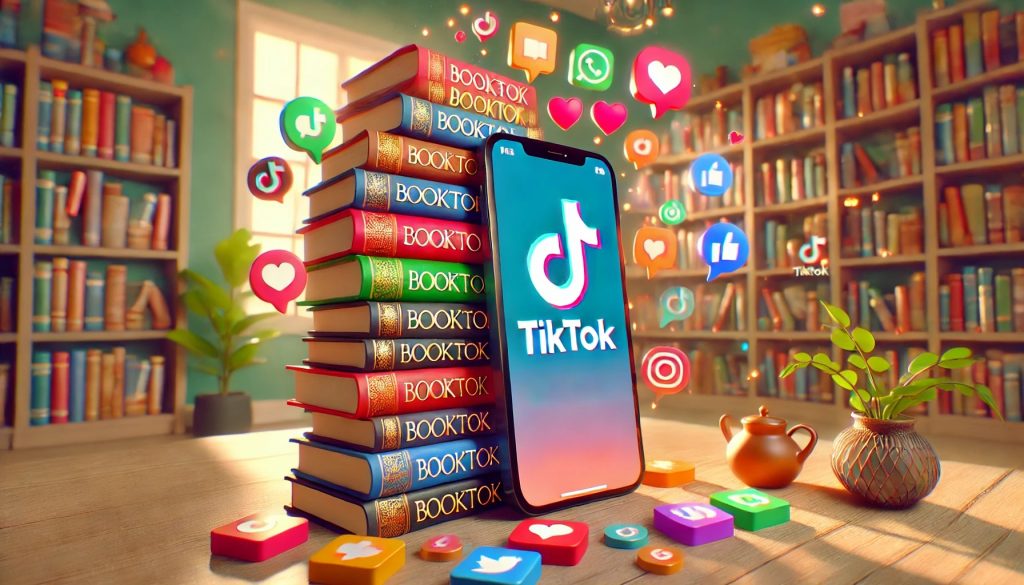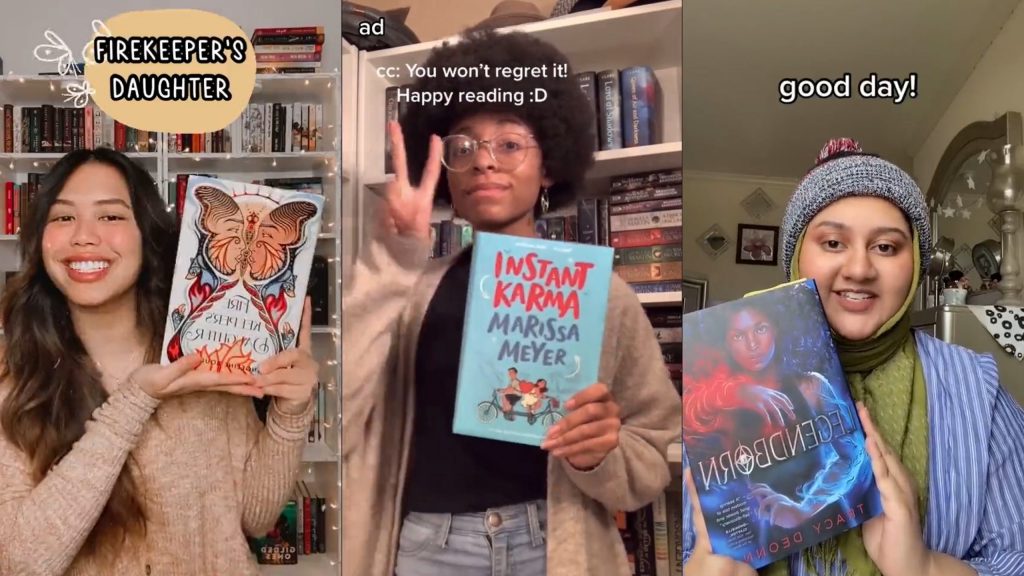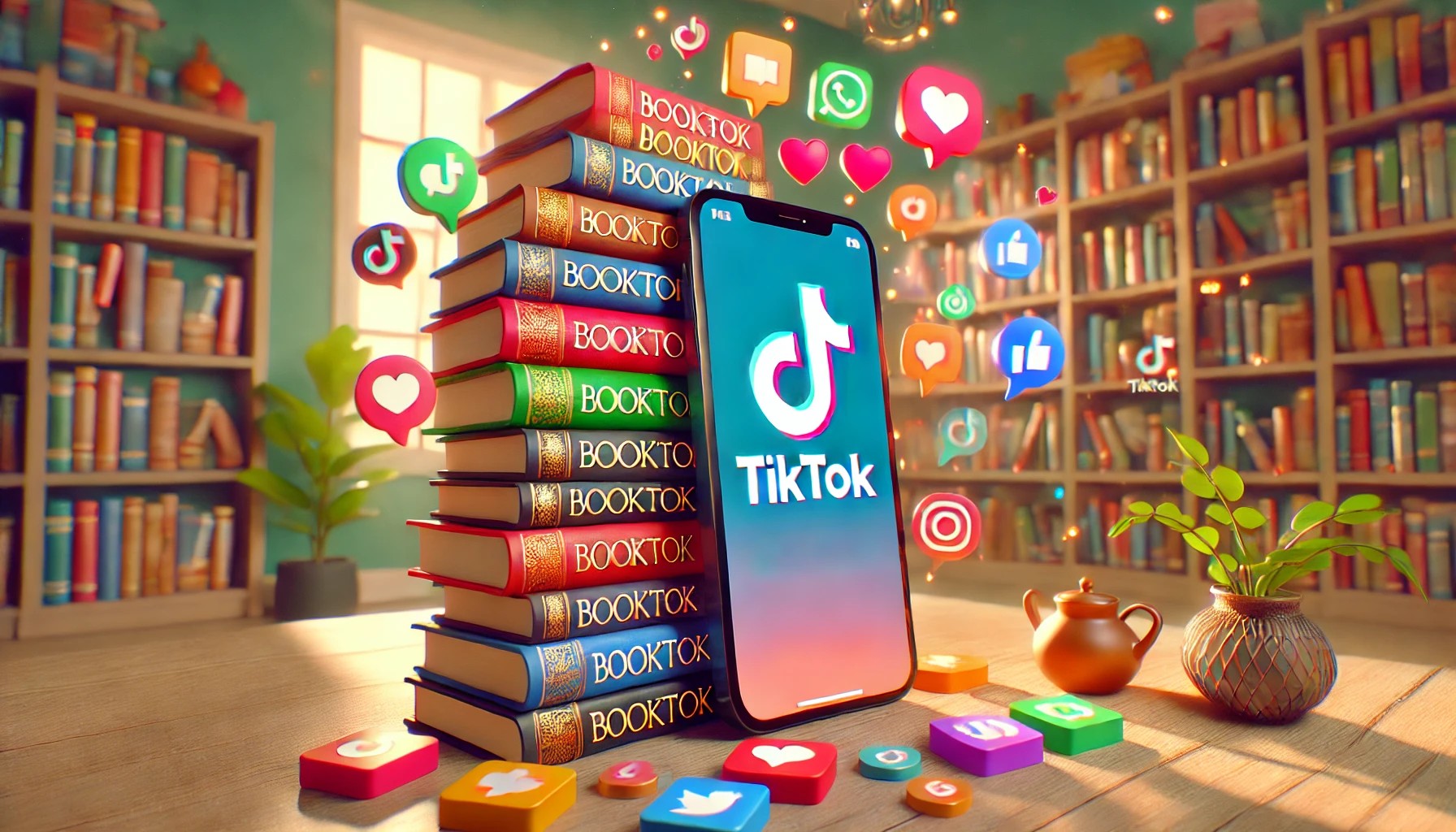BookTok Revolutionizing Reading Habits in 2024
In the age of digital content and short attention spans, one might assume that the love for books would be on the decline. However, thanks to the phenomenon known as BookTok, reading has not only survived but thrived. This vibrant community, primarily found on TikTok, has brought a fresh wave of enthusiasm for books, sparking discussions, creating trends, and even influencing the publishing industry in ways we’ve never seen before.

What is BookTok?
BookTok is a corner of TikTok where book lovers unite to share reviews, recommendations, and reactions to the latest (or sometimes the oldest) titles. What started as a niche has exploded into a global community where users can follow trending hashtags, discover new reads, and even interact with authors directly. The content ranges from emotional book reviews to humorous takes on beloved characters. BookTok has created a space where readers feel connected, despite often engaging in what is traditionally a solitary activity.
The Power of a Viral BookTok Trend
The impact of BookTok cannot be overstated. A book can go from relatively unknown to a bestseller overnight if it catches on within the community. This has given rise to a new kind of influencer—BookTokers—who have the power to shape what people are reading, discussing, and buying.
For example, Colleen Hoover’s novels, particularly “It Ends With Us,” became incredibly popular after being heavily promoted by BookTok creators. Hoover’s work, once moderately successful, soared to the top of bestseller lists and remained there for months, all thanks to the viral power of BookTok.
But it’s not just contemporary works that benefit from this trend. Classic literature has also seen a resurgence. Books like The Song of Achilles and Wuthering Heights are finding new audiences through heartfelt reviews and relatable content that draws on modern parallels.

Why is BookTok So Popular?
One key reason for BookTok’s popularity is the platform’s ability to create emotional connections. Watching someone express their love—or heartbreak—over a book can inspire others to pick up the same title. The authenticity and passion in these posts cut through the noise of traditional book reviews.
Moreover, BookTok provides a sense of community. Readers who might not have friends or family who share their interests find kindred spirits on the platform. This sense of belonging encourages more engagement, more discussions, and ultimately more reading.
The visual format also helps. Seeing users display their personal libraries, act out scenes, or even share aesthetically pleasing shots of their favorite book covers makes the content more engaging than a simple written review. The algorithm’s ability to quickly surface related content also keeps viewers hooked, encouraging them to explore more books that align with their tastes.
How BookTok is Changing the Publishing Industry
Publishers have taken note of BookTok’s influence and are now working directly with creators to promote upcoming titles. In some cases, entire marketing strategies are built around potential BookTok success, with publishers sending advance copies to popular creators in hopes of sparking early buzz.
This symbiotic relationship has given rise to new book trends as well. Romance and fantasy genres are particularly popular within BookTok, and publishers are commissioning more works in these areas to meet demand. Meanwhile, self-published authors are finding success through viral recommendations, with some even landing traditional publishing deals as a result.
Where is BookTok Headed?
BookTok’s influence shows no signs of slowing down in 2024. As more creators emerge and the community continues to grow, it’s likely that BookTok will only become more intertwined with the fabric of the publishing world. The lines between social media influencers and literary tastemakers are blurring, and the future of reading is looking more exciting than ever.
For authors, readers, and publishers alike, BookTok is not just a trend—it’s a movement. And as it continues to evolve, we can expect it to keep shaping the way we discover and engage with stories, bringing people back to books in ways we never imagined.

